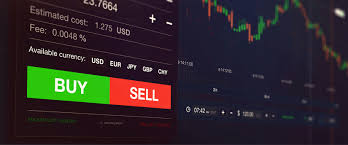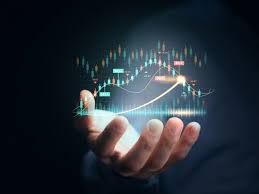
The Forex trading landscape is rapidly evolving, and artificial intelligence (AI) is at the forefront of this transformation. Algorithms and machine learning models are changing the way traders approach the currency market, making it easier for individuals and institutions alike to capitalize on profit opportunities. One noteworthy platform that emphasizes crypto trading is ai trading forex minereum.com, where automated trading methods are utilized effectively. In this article, we will explore the intricacies of AI-assisted Forex trading and its implications for the future.
What is AI Trading?
AI trading involves using advanced algorithms and machine learning techniques to analyze market data and execute trades. These systems can process vast amounts of data much faster than a human trader, allowing them to identify potential trading opportunities with greater accuracy. AI trading can range from fully automated systems to semi-automated setups where human oversight is still required.
How AI is Transforming Forex Trading
In the Forex market, AI technology is already having a significant impact. Here are some key ways in which AI is transforming Forex trading:
1. Enhanced Data Analysis
The ability of AI to analyze enormous sets of data in real time allows traders to understand market conditions better. Through predictive analytics, AI systems can assess historical data, current trends, and even incorporate social sentiment to forecast currency movements.
2. Automated Trading Strategies
Many trading strategies can now be automated using AI. Traders can develop unique algorithms that execute trades based on specific market conditions, risk profiles, and trading incentives. This automation alleviates the emotional stress often associated with manual trading and promotes discipline in executing strategies.
3. Speed and Efficiency
Time is of the essence in Forex trading. AI systems can execute trades in milliseconds, capitalizing on tiny price movements that may occur in the market. This speed gives AI-based traders a competitive edge, especially in volatile market conditions where human reaction time may not suffice.

4. Risk Management
AI can assist in optimizing risk management through dynamic modeling. By analyzing historical performance and current market factors, AI can adapt stop-loss orders and position sizing based on real-time data, helping traders minimize losses during adverse market conditions.
5. Emotional Detachment
Human emotion can lead to irrational trading behaviors driven by fear or greed. AI systems are devoid of emotions, leading to more stable and consistent trading patterns. This characteristic helps traders stick to their plans without deviating due to psychological pressures.
Challenges of AI Trading in Forex
While AI brings many advantages to Forex trading, there are also challenges and limitations that need to be considered:
1. Market Dynamics
The Forex market is influenced by various factors, including political events, economic releases, and unforeseen market shocks. AI models can struggle to adapt rapidly to sudden changes, leading to potential losses if they aren’t updated in real-time.
2. Data Quality
AI’s effectiveness is directly correlated to the quality of the data it processes. Poor quality, outdated, or incomplete data can lead to inaccurate predictions and suboptimal trading decisions.
3. Overfitting
AI algorithms can sometimes become overly complex and optimally tailored to historical data, leading to overfitting. When this occurs, the model may perform well in backtesting but poorly in real-time trading conditions.

Future of AI Trading in Forex
Despite the challenges, the future of AI trading in Forex looks promising. As technology continues to evolve, we can expect better algorithms, improved machine learning models, and more robust data analysis techniques. Here are some potential advancements to look forward to:
1. Greater Personalization
Future AI trading systems may allow for more personalized trading strategies that align closely with individual risk preferences and trading styles. This customization could lead to better performance outcomes for traders.
2. Integration with Other Technologies
AI trading systems may increasingly integrate with other emerging technologies, such as blockchain and decentralized finance (DeFi). These integrations could enhance transparency, security, and efficiency in Forex trading.
3. Enhanced Algorithms
As AI technology continues to advance, new algorithms that can adapt to changing market conditions will likely emerge. Machine learning models may become significantly better at recognizing patterns that lead to profitable trading opportunities.
Conclusion
AI trading in the Forex market represents a significant evolution in how traders approach the currency exchange. By harnessing the power of automation, predictive analysis, and emotional detachment, traders can leverage the benefits of AI to enhance their trading performance. Despite some challenges, the ongoing development of AI technology will continue to reshape the Forex trading landscape, offering new and exciting opportunities for traders worldwide.
